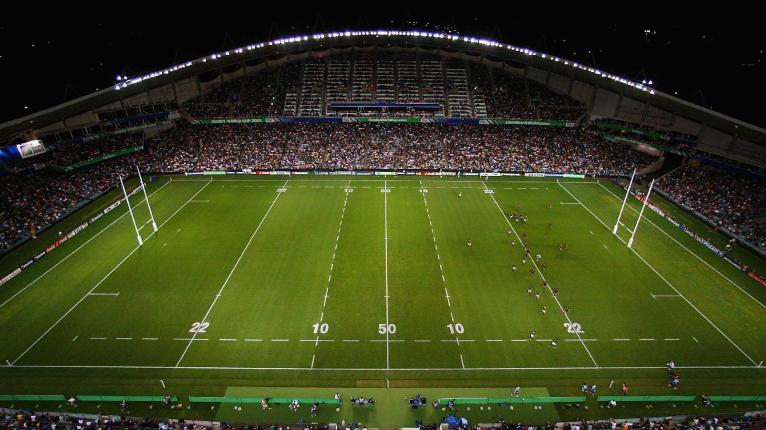How hosting the 2027 World Cup could save rugby in Australia

It’s been 17 years since Australia last hosted rugby’s blue ribbon event in the form of the World Cup, and there may be no more important time for them to host again than in seven years’ time.
Last week’s withdrawal of Argentina as candidates to roll out the red carpet for the 2027 World Cup leaves Australia as just one of two countries that have announced formal bids to host the event.
Despite speculated interest from the likes of South Africa and the United States, Australia’s only competition for hosting rights at the time of writing is Russia.
Stanislav Druzhinin, general director of the Russian Rugby Union, announced last May that his organisation would join the race to hold the eleventh World Cup after Rugby Australia threw its lot in at the end of 2017.
To see Russia – the world’s 20th-ranked country that only made its second World Cup appearance last year through an eligibility scandal – handed the hosting rights ahead of Australia by next year’s deadline would come as a significant surprise, though.
One could argue that holding a World Cup in a developing rugby nation like Russia could have a similar impact to when Japan hosted last year’s tournament, whereby the entire nation was captivated by the Brave Blossoms’ unprecedented feat of reaching the quarter-finals for the first time.
That much was evidenced by the 54.8 million in Japan – over 40 percent of the country’s population – who tuned in to watch their side defeat Scotland in their final pool match.
The benefits of tapping into a large sporting market like Japan’s were beginning to show in the months following the World Cup as well, via the massive crowd numbers that flocked to the nation’s star-studded Top League prior to the coronavirus disruption.
With a similar population to Japan and a proven track record of hosting major sporting events such as the 1980 Moscow Summer Olympics, 2014 Sochi Winter Olympics and the 2018 FIFA World Cup, rugby could be expected to boom in Russia like it has in Japan if the World Cup after next is held there.
The development of rugby in a minnow nation where it has the potential to explode could only be good for the sport, especially in its never-ending pursuit of becoming a global game in the ilk of its big cousin football.
But to award the 2027 World Cup to Russia would neglect the crying needs of rugby within Australia from both a social and financial standpoint.
Never mind the fact that – between England 2015, Japan 2019 and France 2023 – three northern hemisphere countries have or will host consecutive World Cups.
To stage a fourth straight tournament up north, and a second successive one in Europe, would be a disservice to all other regions of the globe, particularly those south of the equator.
Of those other regions, few, if any, are in as desperate need of a financial injection and revitalisation of rugby than Australia.
Like many national unions around the world, the COVID-19 pandemic has obliterated Rugby Australia’s coffers, with the organisation staring down the barrel of a A$120 million revenue deficit should no rugby be played in 2020.
No governing body in rugby can withstand a financial downfall of that magnitude, and the sport would be much worse off without Rugby Australia, the Wallabies and their four Super Rugby franchises if they went under.
That alone should provide World Rugby with an incentive to gift wrap the 2027 hosting rights and hand them to Australia given the immense revenue potential that a World Cup can generate.
While World Rugby collects its tournament revenue through broadcasting rights, sponsorships and tournament fees, the host union of a World Cup keeps the money made from ticket sales.
Japan illustrated how lucrative that revenue source can be after they sold an estimated 99.3 percent of available tickets for last year’s event to bolster their bank balance by US$343 million, which translates to over A$542 million.
That means the tournament’s organising committee not only made enough money to solve Rugby Australia’s current financial crisis, but they did so with an extra A$422 million to spare.
There should be few concerns that Australia couldn’t do the same with their stadium infrastructure when taking into account that Japan pocketed that much coin from a tournament that was staged across 12 stadia varying between 16,000 and 72,000 in capacity.
Australia’s bid to host the 2027 event features 12 stadia sprawled across the nation’s vast landmass, the largest being Sydney’s Stadium Australia (75,000) and the smallest being Townsville’s new North Queensland Stadium.

With a capacity of 25,000, the freshly-built home of the NRL’s North Queensland Cowboys is bigger than three of the venues used in Japan, while Stadium Australia can fit in 3,000 more bodies than that of Yokohama International Stadium, the stage of the 2019 World Cup final.
Therefore, if Rugby Australia mirrors the ticket sales achieved by the Japan Rugby Football Union last year, this economic calamity it finds itself in could be little more than a distant memory once the Webb Ellis Cup is lifted in Sydney seven years from now.
Filling stadia across Australia – a country that is obsessive about rugby league and Australian football – for rugby union at a rate of almost 100 percent is much easier said than done, though.
To say that Australian rugby – which once boasted the best team on the planet through the Wallabies, a side that won two World Cups, a British and Irish Lions series, two Tri Nations and seven Bledisloe Cups in the 1990s and early 2000s – has fallen from grace would be an understatement.
The fact that Rugby Australia has even found itself facing such a daunting financial dilemma is indicative of where the game is at in the nation.
In the past 12 months alone, a World Cup quarter-final exit by the Wallabies, the Israel Folau saga, severely low attendance figures and numerous high-profile player departures from Super Rugby have compounded an annual loss of A$9.4 million for 2019.
Failure to secure a new broadcast deal and the public fallout between the governing body, the nation’s players’ association and a raft of former internationals in recent weeks has only exasperated Australia’s rugby woes.
Many on social media are not convinced of the intentions behind an explosive letter of no confidence in Rugby Australia penned by former Wallabies greats.https://t.co/7f4oHUwUOd
— RugbyPass (@RugbyPass) April 22, 2020
Raelene Castle’s position as Rugby Australia’s chief executive is subsequently hanging by a thread, which is astonishing in itself given the current climate the game finds itself in around the globe.
All of this has created an incredibly negative image for rugby within Australia, which is the last thing it needs considering it was already grappling to compete with the NRL and AFL for fan interest and engagement.
Rugby union’s struggle to compete for fans with its rugby league and Aussie rules counterparts is clear to see when you compare attendance figures throughout Australia in recent times.
The NRL managed to reel in an average attendance of nearly 16,000 last year, while the AFL averaged a crowd figure of 36,317 for 2019, with regular season games often welcoming crowds in excess of anywhere between 60,000 and 90,000.
Despite being played in heavy rain, the round 15 clash between Port Adelaide and the Western Bulldogs still garnered a crowd of over 25,000 – the lowest-ever attendance figure for an AFL match held at Adelaide Oval.
The Waratahs could have only dreamed for a similar turnout when they played host to the Blues in similar conditions at McDonald Jones Stadium in Newcastle earlier this year.
Instead, a measly crowd of just under 7500 dispersed themselves throughout the 33,000-capacity venue to watch their side get thumped 32-12 by the Kiwi franchise.
In fact, the largest recorded attendance in Australian Super Rugby this year was the 13,323 who turned up to the 52,000-capacity Suncorp Stadium in Brisbane to witness the Reds lose 33-23 to the Sharks eight weeks ago.
https://www.instagram.com/p/B90YvTjAKlk/?utm_source=ig_web_copy_link
Only the Wallabies have been able to keep the turnstiles ticking over to the maximum, but even fully relying on them can be hit and miss.
While the sell-out crowd for last year’s Bledisloe Cup victory at Perth’s Optus Stadium, which holds 60,000, was lauded as a success, barely half of Suncorp Stadium was filled the week beforehand when Australia took on Argentina.
This all paints a grim picture heavily indicating that rugby union’s status in Australia has fallen well down the pecking order, with the sport fans far rather preferring the other oval ball-shaped football codes.
It’s a far cry from the glory days of a few decades ago, but that’s exactly why Australia needs the hosting rights for the 2027 World Cup.
As has been the case with each passing World Cup, welcoming the rugby world into each host nation’s backyard has been pivotal in capturing the imagination of fans and the wider public.
Two of the most clear-cut examples have been New Zealand 2011 and Japan 2019, especially in the latter tournament, where the brand of rugby was exposed and promoted in a manner that couldn’t have been achieved without World Cup hosting rights.
Such an impact was similarly felt at a spectator level when Australia hosted the 2003 event, and it’s that injection of fanfare and public interest that Australian rugby desperately needs in the face of the all-powerful NRL and AFL.
A spike in fan interest could well lead to brighter prospects on the playing field, as a home World Cup or a successful campaign by any given nation has the potential to inspire a generation.
With Australia’s broad athlete base spread across rugby union, rugby league and Aussie rules – as well as football, cricket and basketball – there is a deep pool of talent who could yet aspire to be Wallabies rather than Kangaroos or Socceroos.
The desired athletic pathway of Australia’s sporting youth may well be determined by next year’s 2027 World Cup selection process.
The same could be said of Russia, who remain potential sleeping giants within the rugby fraternity.
But, with Australia in great need of a rugby renaissance, a bid for the 2031 event may stand as a better option for the Russians while the traditional powerhouses of the sport undergo what would be a warmly-welcomed revival of the XV-man code.











































































